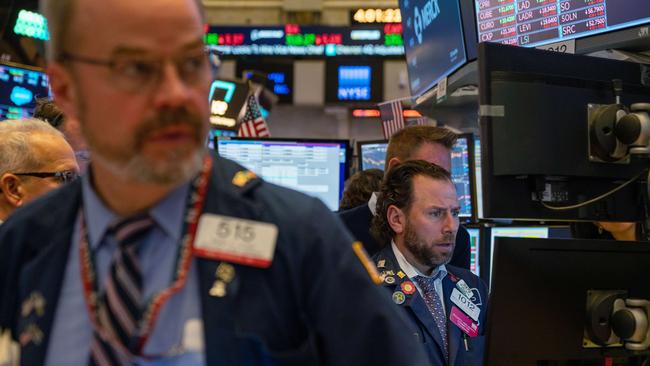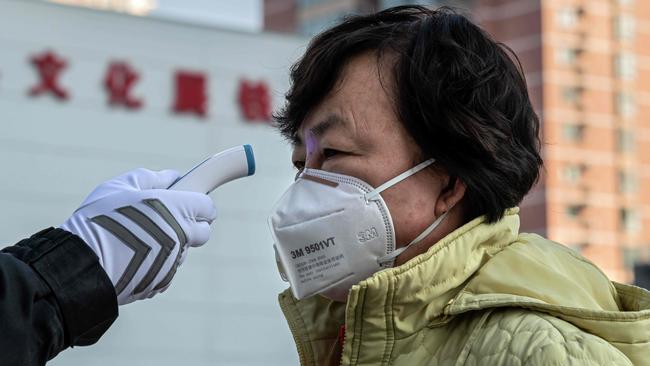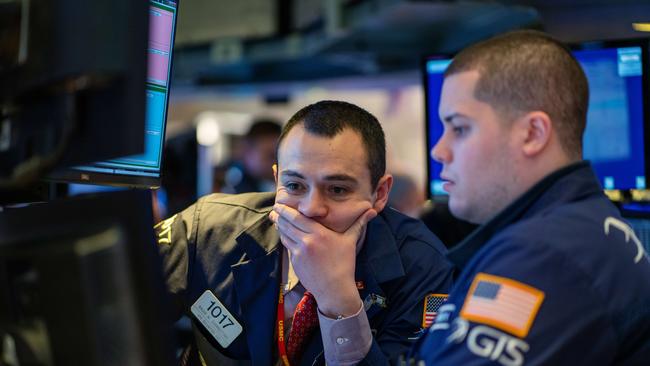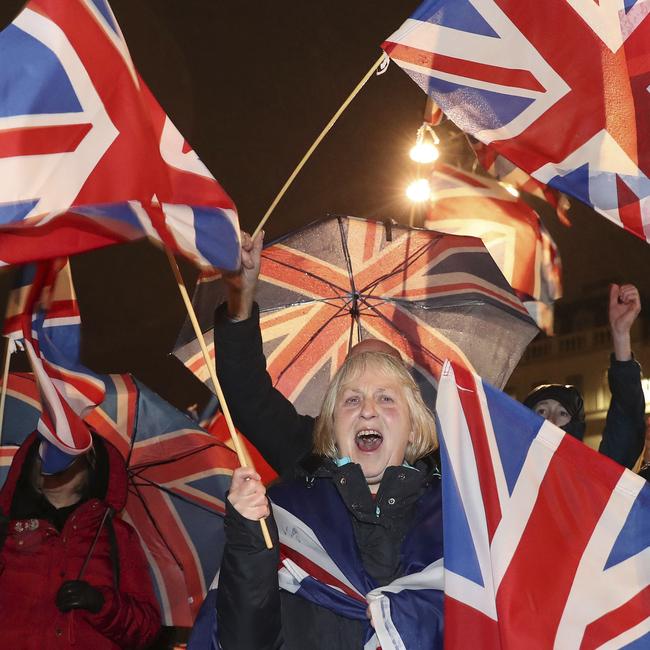Terry McCrann: Get ready for Manic Monday
The coronavirus scare and the bushfires will hurt our economy in ways that were totally unexpected pre-Christmas; and more pointedly, weren’t factored into either forecasts or policy either in Canberra or at the Reserve Bank, writes Terry McCrann.

Terry McCrann
Don't miss out on the headlines from Terry McCrann. Followed categories will be added to My News.
Just another Manic Friday on Wall St, as the Dow plunged 600 points overnight on Friday our time as we slept, to set up an “interesting” start to the week on what could be a (mini) Manic Monday down under.
And for that matter Brexit finally, finally happened, as we were waking up on Saturday morning.
The last I looked, as I was writing this, Britain hadn’t disappeared beneath the waves or collapsed into the chaos predicted by all the “experts” back in 2016, led by the squawking idiot otherwise known as the Governor of the Bank of England.
Now, there are quite a few important points to kick off, in my first Sunday column back for 2020 — in terms of what we might have thought would be top of mind for the new year back in December when we were counting down to Christmas and the break.

Domestically of course the big — left field — event has been the bushfires; globally it’s the coronavirus.
Both were just starting to bubble mid-December. Both will hurt our economy in ways that were totally unexpected pre-Christmas; and more pointedly, weren’t factored into either forecasts or policy either in Canberra or at the Reserve Bank.
The bushfires will have a negative hit through February (and January) — and then completely reverse in March and beyond, as all the rebuild spending kicks in. It’s a real-world example of the Keynesian argument for getting people to dig holes — and then fill them up. In this case, more brutally, burning down houses and then rebuilding them.
Up to the point, the coronavirus will be similar. There’s a short-term hit on a whole range of fronts — most prominently tourism and education; and then it will be all and more made up.
And that applies not just to us — the single biggest beneficiary, by far, in the entire world, of the long China boom — but to the world.
That’s, on the crucial assumption, that the virus is contained, both in China and in all the other places there have been scattered outbreaks.
Two broad points can be made about this.
On the assumption that we can believe what we are being told about the numbers in China — and I do think we largely can; it’s a very different China in a very different real-time world than even that of 15 years ago when SARS erupted — it’s not that bad.

So far there have been 200-plus deaths. Remember it is winter there; every week some thousands would be dying of ordinary flu.
In Australia, in winter, our flu deaths would swamp the number reported so far for the virus in China. Translate those 200 deaths in China to our population and it would be just four or five. Over nearly a month.
Secondly, whatever, we will largely find out over the next two weeks, the incubation period. That will clarify the spread in China; more importantly, it will clarify what’s developing outside China.
Once it is contained, as it will be, here, there and everywhere, it is back to 2020 business as usual. In December, I suggested that it would be one of relative stability; I still do.
The US Fed kicked things off during the week by leaving its official interest rate unchanged. Our RBA will do the same thing on Tuesday.
There’s little prospect of the Fed changing the rate soon.
It’s not quite so clear-cut with our RBA; although the RBA itself is far, far less enthusiastic about cutting the rate further as so many outside “experts” are demanding.
That said, it will cut if it believes it is necessary; the two key things to watch are the jobless rate and consumer spending.

Interestingly — or whatever the appropriate word is — we’ve been helped by the fall in the Aussie dollar on the back of the coronavirus worries. That’s also made a further rate cut slightly less likely.
Now it’s possible that this could prove to be a “cathartic” event in China. But more likely it will prove just another blip and slightly positive in the longer-run at that.
The speed with which they are building the special hospital in Wuhan suggests both (spectacular) business as usual, but also a “better” China.
As I concluded a column before Christmas in relation to the issue of President Trump’s tariff war with China: I suggested it would be played out in “shocks” that sent markets plunging when an “event” erupted and then back up when it’s “solved”. Or not.
That’s all great for speculators, but pretty much a wash for everyone else over time.

